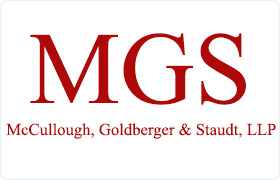Highland Mills Real Estate Other Lawyer, New York
Sponsored Law Firm
-
 x
x

Click For More Info:
-
Mccullough, Goldberger & Staudt, LLP
1311 Mamaroneck Ave Suite 340 White Plains, NY 10605» view mapReal Estate Other Get The Support You Need For Your Case
A knowledgeable attorney is always accessible, the client is kept abreast of the issues and all matters are handled efficiently through completion.
800-707-8440
Includes: Commercial Leasing, Commercial Real Estate, Condominiums, Conveyancing, Housing & Urban Development, Premises Liability, Residential Real Estate, Title Insurance
Richard Schisano
Bankruptcy, Business Organization, Collection, Commercial Leasing
Status: In Good Standing Licensed: 45 Years
Gisele Camielle Rosado
Commercial Real Estate, Civil Rights, Contract, Credit & Debt
Status: In Good Standing Licensed: 19 Years
Gisele Camielle Rosado
Commercial Real Estate, Contract, Credit & Debt, Civil Rights
Status: In Good Standing Licensed: 19 Years
Julia C. Goings-Perrot
Commercial Leasing, Health Care Other, Health Care, Employment
Status: In Good Standing
Anthony M. Barraco
Personal Injury, Commercial Real Estate
Status: In Good Standing Licensed: 57 Years
 Charles Goldberger White Plains, NY
Charles Goldberger White Plains, NY AboutMccullough, Goldberger & Staudt, LLP
AboutMccullough, Goldberger & Staudt, LLP Practice AreasExpertise
Practice AreasExpertise